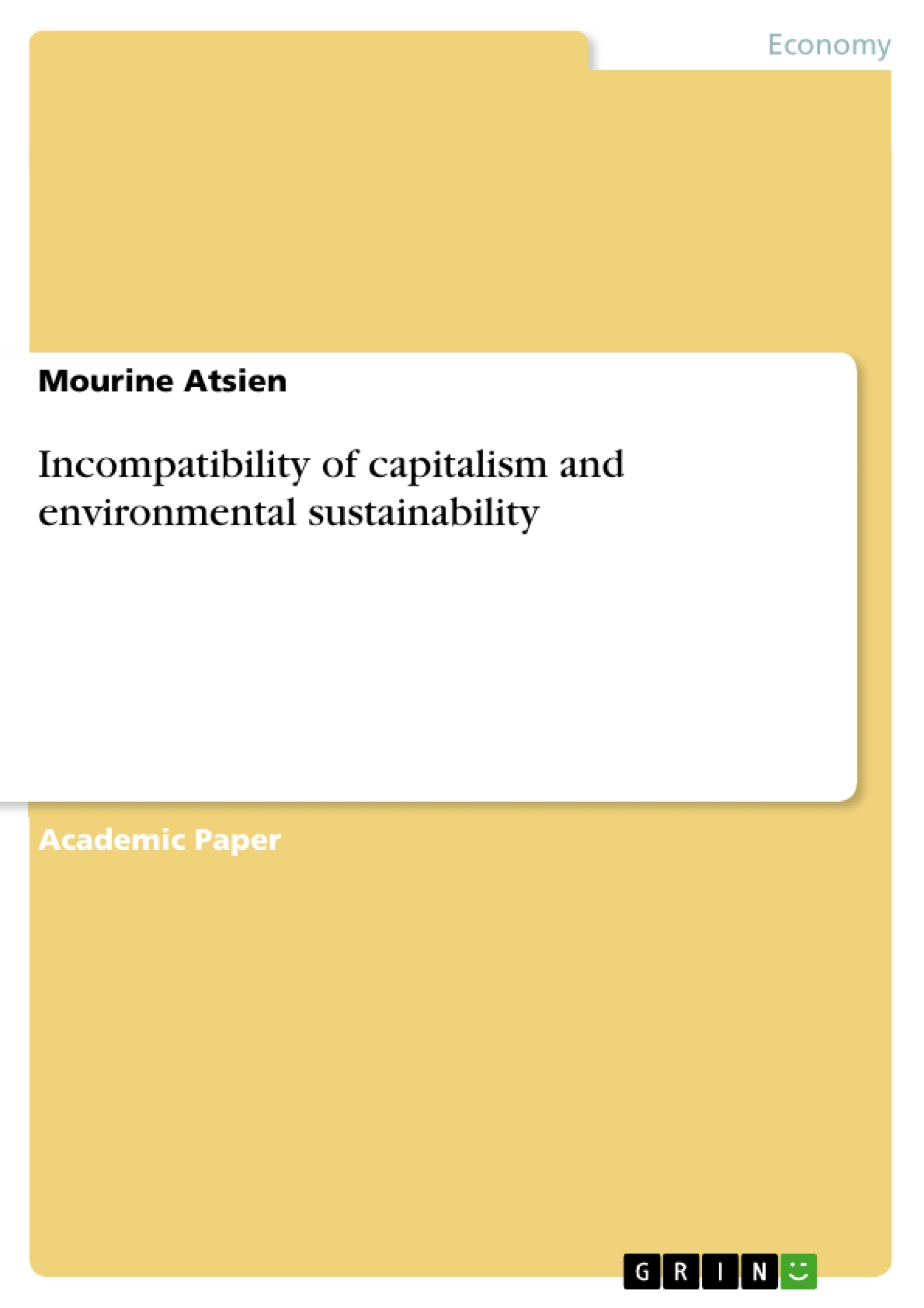Capitalism is the dominant economic policy in most of the developed world. In the United States, policymakers hail capitalism is the ultimate solution to most of the world's socioeconomic problems, such as poverty reduction, education access, and healthcare affordability (Cahen-Fourot, 2020). Most European nations, including the United Kingdom and most of the EU members, tend to adopt similar arguments with minor caveats. However, policymakers often ignore its potential adverse effects on the environment. Capitalism refers to an economic system characterised by infinite production and consumption (Schweickart, 2010).
Inhaltsverzeichnis (Table of Contents)
- Introduction
- Discussion
Zielsetzung und Themenschwerpunkte (Objectives and Key Themes)
This essay explores the inherent incompatibility between capitalism and environmental sustainability, critically examining various elements of capitalism that contribute to ecological degradation. The paper also investigates potential capitalistic actions that could contribute to environmental sustainability.
- Capitalism's focus on profit maximization and short-term economic gains conflicts with long-term environmental sustainability.
- Capitalism's inherent tendency toward overproduction and overconsumption negatively impacts environmental resources.
- Capitalistic practices often externalize environmental costs onto workers and society, leading to environmental degradation.
- The commodification of nature under capitalism threatens the availability of essential resources and contributes to ecological crises.
Zusammenfassung der Kapitel (Chapter Summaries)
- Introduction: This section introduces the central argument that capitalism and environmental sustainability are incompatible due to capitalism's emphasis on profit maximization and disregard for environmental costs. It outlines the essay's objective to evaluate the elements of capitalism that hinder environmental sustainability and explore potential avenues for compatibility.
- Discussion: This section delves into the fundamental aspects of capitalism that pose challenges to environmental sustainability. It examines the role of private ownership, market forces, and government regulations in shaping production and consumption patterns. The discussion highlights the inherent tension between capitalism's pursuit of economic growth and the need for environmental preservation. It also explores the concept of externalities, emphasizing how environmental costs are often shifted onto workers and society, further exacerbating environmental degradation. Furthermore, the section examines the historical commodification of nature under capitalism and its negative consequences, including resource depletion, pollution, and habitat destruction. It concludes by underscoring the urgency of addressing the environmental consequences of capitalist practices to prevent ecological catastrophe.
Schlüsselwörter (Keywords)
The key concepts and themes of this essay include capitalism, environmental sustainability, overproduction, overconsumption, externalities, commodification of nature, ecological crisis, climate change, and profit maximization.
Frequently Asked Questions
Why is capitalism considered incompatible with environmental sustainability?
Capitalism is characterized by infinite production and consumption, which conflicts with the finite resources of the planet and long-term ecological health.
What role does profit maximization play in environmental degradation?
The focus on short-term economic gains often leads to the disregard of environmental costs, which are then externalized onto society and the ecosystem.
What are "externalities" in the context of capitalism?
Externalities refer to environmental costs (like pollution) that are shifted away from the producing company and onto workers and the general public.
How does the commodification of nature affect sustainability?
Treating nature as a commodity leads to resource depletion and habitat destruction, as essential natural resources are exploited for market value.
Can capitalistic actions ever contribute to environmental sustainability?
The essay explores potential avenues for compatibility, examining whether government regulations and market shifts can mitigate the negative impacts of capitalism.
- Citation du texte
- Mourine Atsien (Auteur), 2022, Incompatibility of capitalism and environmental sustainability, Munich, GRIN Verlag, https://www.grin.com/document/1330022



